Contents
Guide

AFFIRMATIONS FOR
TURBULENT TIMES
Resonant Words to Soothe Body and Mind
SARAH PEYTON

 CONTENTS
CONTENTS 


H UMAN BRAINS can be a little difficult to make peace with. Depending on how much aloneness and emotional trauma we have lived through, our brains may have picked up the habits of relentless self-criticism and self-blame. Unfortunately, although these habits are well intended and are meant to improve us and make us safe, they dont actually contribute to our long-term well-being. Instead, these thought patterns increase our anxiety and stress levels, depress our immune systems, and keep us from fully engaging in the world.
The good news is that with resonancethe powerful combination of understanding and warmthbrains change. With resonance, our brains become good and welcoming places for us to live. Supportive neurotransmitters start to flow, improving mood, energy, and relationships. Relentless self-criticism and self-blame fall away, replaced by effectiveness, new capacity to focus, and new abilities to dream and to rest. This change happens thought by thought, and neural connection by neural connection.
This means that the thoughts we have about ourselves, our lives, and our futures matter. The words we use with ourselves make a difference. Oh, so simple! we might think. All I have to do is change the words I use with myself. That is partly true, but if we use words that are entirely contradictory to our feelings, it is stressful for us. So there is a negotiation between acknowledging what we truly feel, which might include grief, anger, shame, or fear, and the kinds of words that nourish the growth of neuronsthe ones that make our brains good places to live and that support our resiliency.
One way to use words that nourish the growth of supportive neurons is to create affirmationspositive expressions that encourage deep self-acceptance, self-warmth, calm groundedness, and hope. This book offers you a series of affirmations which you can use as starting points for the creation of powerful acknowledgments and statements to change your brain.
Research shows us that we find affirmations pleasurable and that they light up the brains reward system. Of course, we do actually have to enjoy them for this to happen. An important element of finding satisfaction in affirmations is to make sure that we have our own consent to work with them. Take a moment right now to ask yourself: Is it okay for me to invite a positive point of view of myself and the world? Am I willing to acknowledge the ways in which things have been difficult? Am I also willing to take responsibility for the ways in which my brains inner voice has been negative, and reach for something a little more hopeful and supportive? Am I willing to let words help to restore my sense of self-competence and connect me to my deepest values? If possible, explicitly give yourself permission to try this approach to self-support and see how it works for you.
Once you receive your own consent to move forward, the activation of the brains reward center can decrease pain and allow different thoughts about the future. Affirmations can also change the way the brain thinks about itself. They have been shown to help people move out of immobilization into action, decrease stress, increase well-being, and improve academic performance.
The book is divided into 12 themes related to the turbulent times in which we are living. Each of these themes has 6 or so different subjects that address different aspects of the themes. You will see questions on the left-hand page and traditional affirmations on the right-hand page. The questions, or wonderings, support the exploration of each theme. You will answer yes to some of the questions and no to others. Researchers have found that asking yourself questions, even using your own first name when you do it, helps your brain to orient toward the self in ways that calm you. If the questions dont feel right, make sure to ask other questions that do feel right, to help you relax and receive the affirmations even more fully. People find different ways of using the affirmations. I recommend that you experiment to find out when and how often the affirmations are most helpful to you. The times when we are most vulnerable to the automatic voice of the brain are the times that I most enjoy using affirmations: in the morning when waking; during morning and evening self-care rituals; when driving or washing dishes; when standing in line. You can experiment with post-it notes on mirrors, with taking phone photos of your favorite affirmations so that you can review them when you are out running errands, or with keeping the book by your bedside. If there is one sentence that is most powerful to you, use that sentence. If the whole page relaxes your body the most, use the whole page. You may find that you work on one theme over time, or that you open the book randomly in the morning to support your day. You wont be able to tell what most supports you until you experiment and find out.
As you move into the book, you may find that you arent even sure its okay to feel the feelings that are named. Everyone has emotions that seem too big for them, or times when it seems like too many emotions are happening at once. These limits come from the worlds we live in, and they make sense. Humans need to have belonging in each of their worlds, and part of the way we belong is to feel the same way, and in the same amounts, as others in our groups. This book offers you your own community of feeling, a safe space to notice and name your own real experience of these turbulent times. If possible, give yourself permission to name what is true for you as you read, and to feel what you really feel. This will support you in getting more out of the book.

Wonderings
ARE YOU MISSING your relatively peaceful life before the present tumultuous times? Do you miss only having to worry about things that were personal, instead of having to worry for the whole world? Do you ache for the old, thoughtless movement through your days, without having to carefully assess every action for danger to self and loved ones, or harm to the ecosystems of the world? Are there moments when you would love nothing more than a return to innocence, even if your innocence was actually ignorance? And at the same time, do you really want the world to be better, rather than only pretending that it is better? Do you support changes that would reduce systemic injustice and make sure that every voice mattered?
Affirmations
I GIVE MYSELF REST, and let myself fully rest, in the world as it is. I embrace the present moment for the truth of its tumult and still find rejuvenation in my breath. I claim my life during these tumultuous times as my own regular life, and I support myself in having times when I only worry about my personal experience. I also give myself moments to worry about the world and everyone in it, and moments when I do not worry at all. I acknowledge that my personal life is bound up in the life of the world, and I affirm that my worry stems from love of life. I tune in to what matters and allow myself to work for change, and to be nourished by life itself, by love itself.


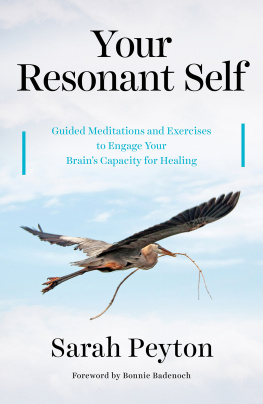


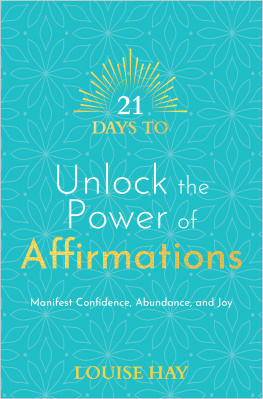

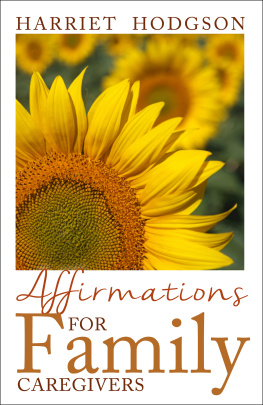
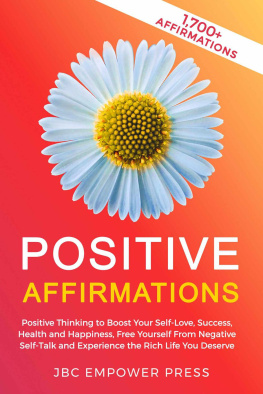
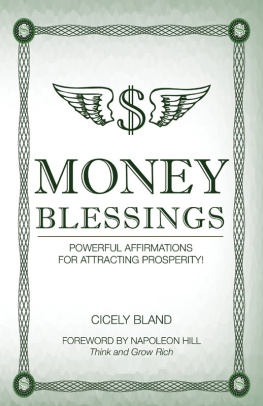
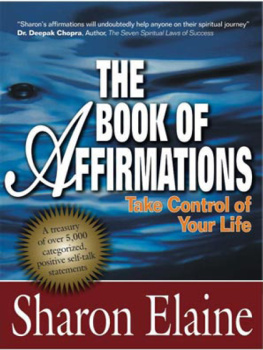
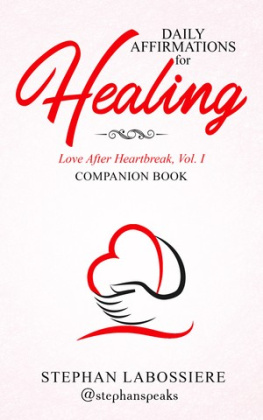
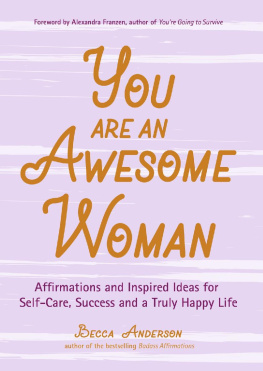

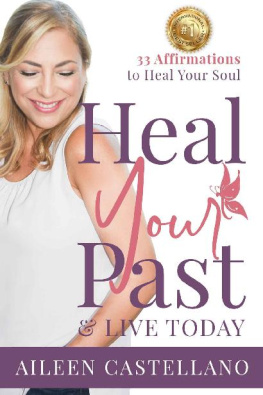


 CONTENTS
CONTENTS 
